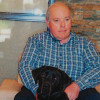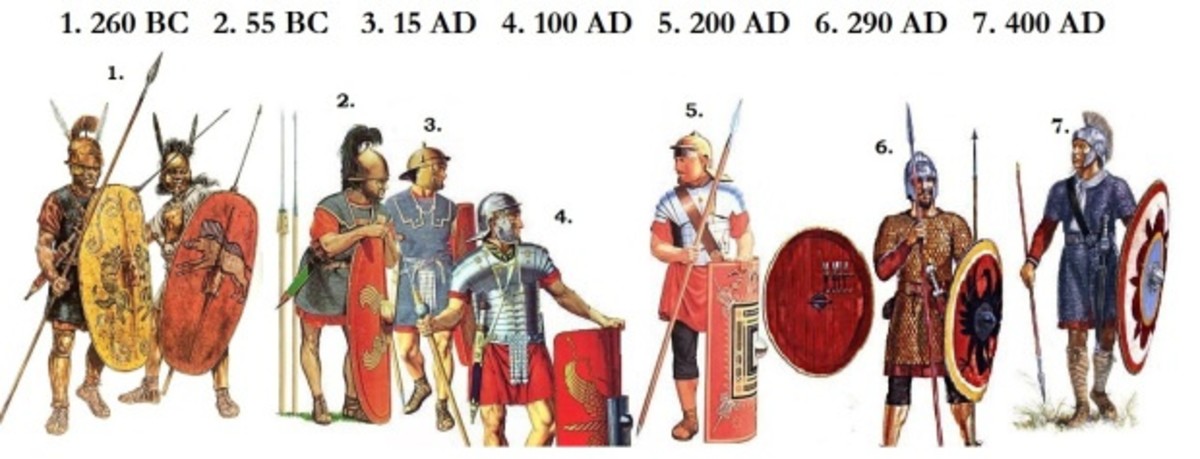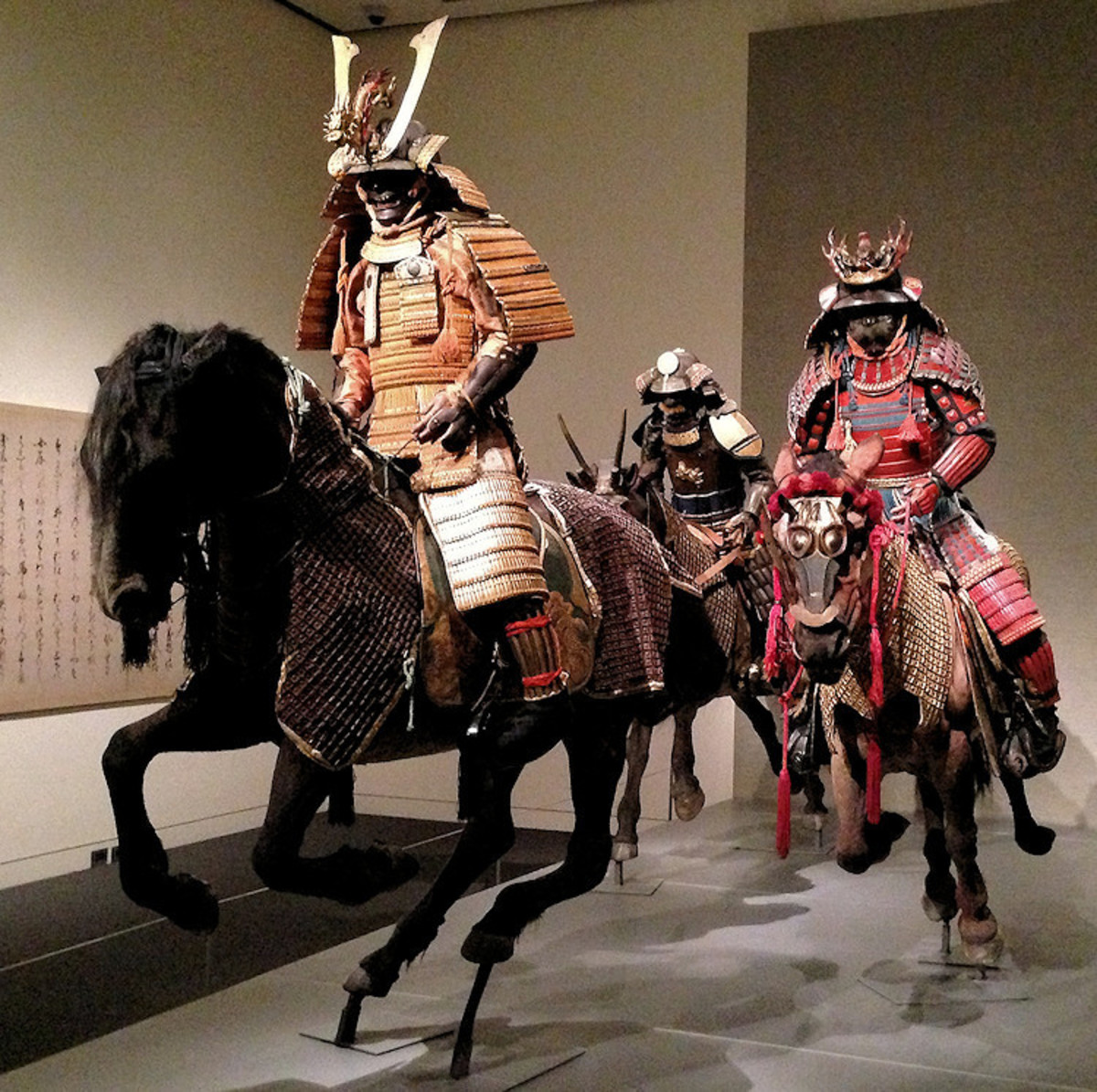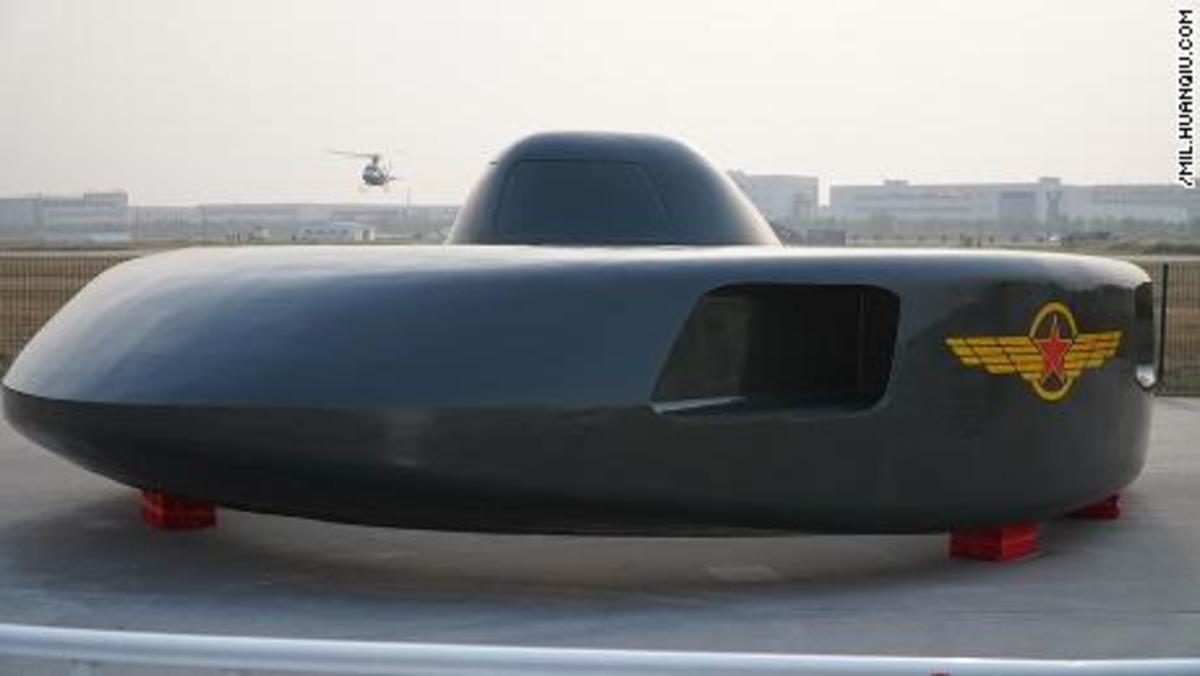History Files: The "Peterloo"Massacre Manchester August 1819.
The Speaker
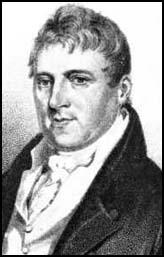
The Road to "Peterloo"
Following the Napoleonic Wars, which ended in June 1815. Britain faced an economic slump. To maintain profits for farmers the government enacted the Corn Laws, a tariff on imported grain, raising the price to support domestic producers. There was a decline in the new industries of the North, particularly in the cotton manufacturing towns of North Cheshire and South Lancashire around "Cottonopolis" the rapidly expanded town of Manchester. Combined with discontent of many citizens without a voice in a Parliament which looked to Britains agricultural past which refused to create Parliamentary seats for the expanding towns and allowed the continuation of "Rotten" and "Pocket" Boroughs,
High food prices and a cut in wages for mill workers caused the government in 1817 to worry that Manchester was becoming a hotbed of discontent and placed local Magistrates on alert warning of the risk of rebellion. Magistrates countered the build up of discontent by employing spies in the factories and raising militia units. One such unit was the Manchester and Salford Yeomanry, a unit of cavalry. The ranks filled with middle class tradesmen, small business owners and clerks. This unit was to play a most tragic role at St. Peters Field, Peterloo, on August 16, 1819.
Chief Magistrate
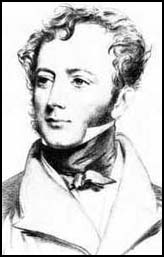
August 1819.
By the middle of 1819, organizers in Manchester were planning a meeting on a large open area called St. Peters Fields. The site was central within the town near the Quaker Meeting House and today's Free Trafe Hall. The meeting called initially on August 2, 1819 was cancelled when magistrates intercepted the letter to Henry "Orator" Hunt who was a leading Politician and supporter of Universal Male Suffrage. The magistrates discovery of the planned meeting placed them on alert and they proceeded to ban all such meetings for that day.
The organizers led by Samual Bamford moved the date to Sunday August 16.
Sunday August 16, was a fine summer day. Processions met in several cotton towns around Manchester, whole families walked in a general party mood, many dressed in their Sunday best clothes, some in church groups others carrying banners calling for the vote and repeal of the corn laws. They made their way into Manchester. Where by about noon around 60,000 gathered around the hustings prepared for the speakers of the day, Henry Hunt arrived at the huystings about 1pm.
At one side of the field was a row of houses, in one of the upstairs rooms of a house owned by Mr Buxton, a group of magistrates watched concerned at the growing crowd. Around the field in side streets stood several bodies of troops, these included two guns of the Royal Artillery, regular troops of the 15th Hussars, the Cheshire Yeomanry, a large contingent of infantry and the Manchester and Salford Yeomanry. It has been alleged that many of the Manchester and Salford Yeomanry had spent much of the morning enjoying the pleasures of local taverns but that is not certain.
Also present was a body of several hundred Special Constables.
The Oldham Tinkers Sing "Peterloo"
After 1pm, August 16, 1819
At about 1pm with Hunt approaching the hustings, the crowd cheering and waving, Hulton and the magistrates ordered the chief constable to arrest the speakers. The chief constable hesitating, pointed out how badly his men were outnumbered and how the crowd might turn hostile. Hulton then sent messages to the troops to move to the edges of St Peters Field. The first to respond were the Manchester and Salford Yeomanry, who galloped through the streets to the field causing the rumoured first casualties. A young woman was said to have been crossing a street carrying her baby. She was hit by a galloping horse knocking her down and dashing her babies head against the sidewalk, killing it instantly.
As Hunt began to speak, the Yeomanry arrived on the field and lined up in front of the houses with the special constables. Their arrival caused some agitation in the crowd, but Hunt is said to have tried to calm the situation calling for the gathering to cheer the soldiers.
By now there was growing confusion in the Buxton House. Hulton moved forward to the upstairs window and reading the Riot Act called upon the crowd to disperse from the illegal gathering. At about the same time the spevial constables started to move into the crowd with much pushing and shoving. Seeing the struggle members of the Yeomanry now with sabres drawn spurred their horses forward pushing into the crowd at first but rapidly the horses and men began to panic as the crowds milled around them. Shortly afterwards sabres began to flail into the crowd.
As the melee near the Buxton house was developing other troops arrived on the field, the infantry with bayonets fixed stabbed and pushed into the crowd, the 15th Hussars and Cheshire Yeomanry took less aggressive action, their officers calling on their men to allow the crowd to dispersse. It is certain that if the Hussars and Cheshire Yeomanry had not acted this way the crowd, encircled would have panicked even more and more fatalities would have resulted.
By about 1.30pm the Manchester and Salford Yeomanry and special constables had reached the hustings and Hunt as well as the organizers of the meeting were arrested.
The field was left with the clutter of bodies, approximately eighteen people were dead, several men including one special constable, who had been struck on the head by a yeoman sabre. Most of the dead where women and a few children, Around the bodies lay the tattered remains of banners and sunday best hats, the whole spattered with blood for the hundreds of wounded, some wounded stragglers left the field slowly to take several hours or weeks to die from sabre and bayonet wounds.
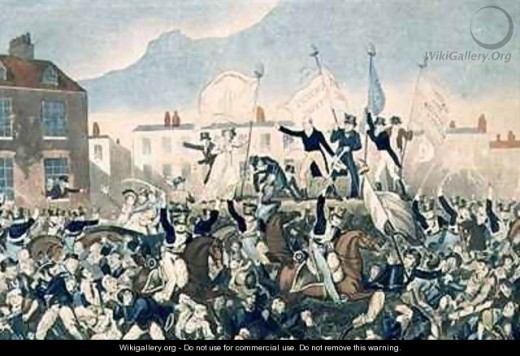
Aftermath
In the immediate aftermath the meeting at St. Peters Fields became known as the "Peterloo Massacre." The events of the day being seen as mocking the glorious victory over Napoleon at Waterloo four years earlier. Hunt was tried and found guilty of incitement and sentenced to thirty months imprisonment. The organizers of the meeting also found guilty on various charges received shorter prison sentences.
Hulton and the Magistrates were exonorated and hailed as heroes after a parliamentary enquiry. Hulton remained Lord Lieutenant of Lancashire.
The protest movement that called the meeting on St. Peters Field eventually gave rise to the Chartist movement, this movement called for universal suffrage, repeal of the Corn Laws, shorter working weeks, a graduated income tax and annual parliamentary elections. The Corn Laws were eventually repealed in 1832 in the Great Reform Act and universal male suffrage was made a reality for men over 21 years of age in the 1880's. Labour laws gradually reduced work hours for women and children first, later all workers, throughout the Nineteenth and Twentieth Centuries. A graduated income tax was introduced as well as a minimum wage during the Twentieth Century.
As of 2011, the only demand of the chartists not to have been met is the demand for annual parliamentary elections.
Useful Links
- Inventions that Changed the World - Yahoo! Voices - voices.yahoo.com
The world today is full of inventions. But which inventions and ideas have most influenced the modern world? - Victorian Network
Victorian Network is a peer reviewed website of high quality Graduate papers and essays. Written by historians and graduate students interested in 19th Century Britain
